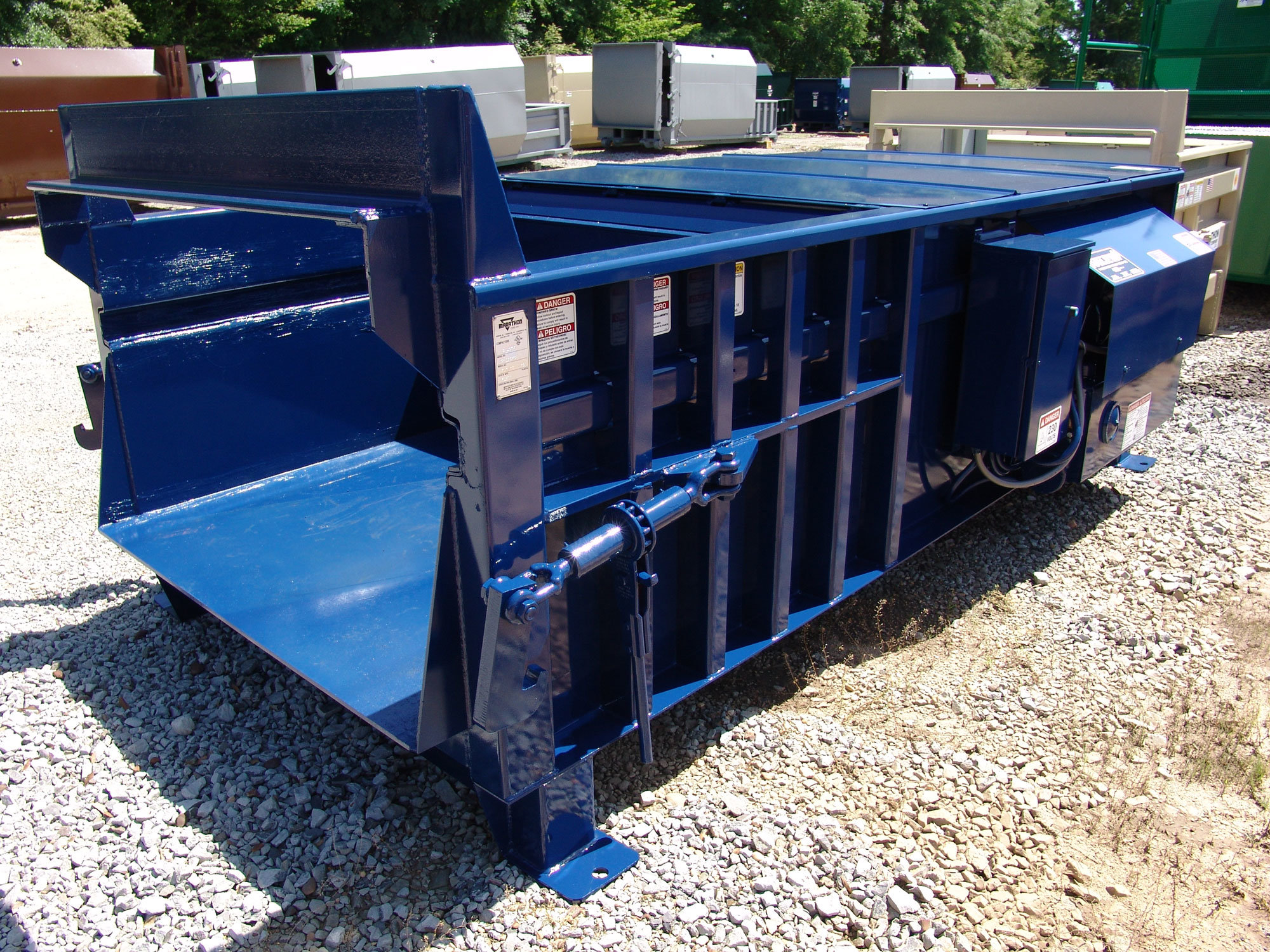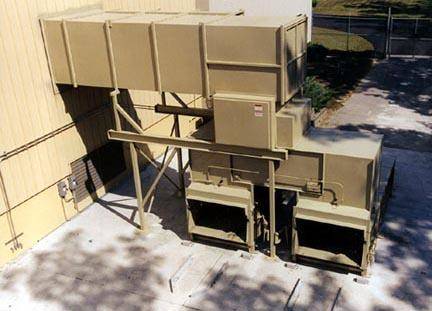How Waste Equipment Boosts Effectiveness in Garbage Compactor Procedures
Waste Equipment plays a vital function in boosting the performance of trash compactor procedures. By using innovative sensing units and automation, these systems enhance compaction cycles and keep an eye on lots capacities efficiently. This assimilation not only saves energy however additionally minimizes pick-up regularity and connected expenses. As companies progressively take on these modern technologies, the ramifications for operational sustainability and monitoring approaches end up being clearer. What other benefits might emerge from these developments in waste Equipment?
The Role of Advanced Sensors in Compaction Effectiveness
Advanced sensors play an essential function in enhancing the efficiency of garbage disposal. These innovative tools keep an eye on various criteria, including lots capacity, wetness levels, and compaction cycles, enabling real-time modifications. By properly determining the quantity of waste, sensing units allow compactors to enhance their procedure, making sure that power usage is minimized while optimizing the quantity of waste processed.
Additionally, advanced sensors add to predictive upkeep by recognizing prospective problems before they cause Equipment failing. This aggressive approach not just minimizes downtime but also expands the life-span of the compactor. On top of that, data collected from these sensors can be analyzed to improve functional approaches, bring about boosted waste administration practices. Overall, the assimilation of sophisticated sensors in garbage compactor greatly improves their performance and operational performance, converting right into price financial savings and a more lasting strategy to garbage disposal.
Resilience and Design: Products That Issue
The toughness and style of garbage compactor pivot significantly on the materials used in their building and construction. High-grade steel is usually the primary choice, giving toughness and resistance to tear and wear. This robust product withstands the enormous stress put in during compaction, making certain long life and reliability. Additionally, elements such as hydraulic systems are usually crafted from corrosion-resistant alloys to stop degradation with time, improving functional efficiency.
Style additionally plays a vital function in functionality; critical reinforcements and ergonomic forms can markedly impact efficiency. Makers usually focus on modular layouts, enabling less complicated upkeep and repair work. Improvements in finishing technologies, such as powder finishing, improve resistance to ecological aspects, including dampness and chemicals. Inevitably, the careful choice of materials not only boosts the structural integrity of garbage compactor yet additionally adds to their general efficiency and efficiency in waste administration operations.
Automation and Smart Technology in Waste Equipment

In addition, automated compactors can enhance compaction cycles based on the volume of waste, making best use of space and boosting functional performance. Assimilation with mobile applications allows customers to check and manage compactors from remote locations, boosting benefit and responsiveness. By adopting these modern technologies, waste management firms can not only improve their functional workflows yet likewise add to more lasting methods by minimizing waste and maximizing resource usage. In general, automation and clever innovation stand for a significant jump ahead in the efficiency of garbage compactor procedures.
Data Analytics for Maximizing Waste Administration
Utilizing information analytics provides waste monitoring companies an effective tool for boosting and enhancing procedures efficiency. By accumulating and evaluating information from different sources, such as compactor efficiency metrics and waste generation patterns, firms can acquire important understandings. These understandings allow them to make enlightened choices pertaining to go to website collection timetables, compactor usage, and maintenance needs.
Predictive analytics can anticipate waste generation trends, allowing firms to designate resources much more effectively and prevent possible overflows or underutilizations of Equipment. Real-time monitoring with information analytics also boosts the ability to react quickly to operational difficulties, lowering downtime and improving service integrity.
Additionally, integrating data analytics with existing waste monitoring systems cultivates a society of continual improvement. By determining inadequacies and tracking performance gradually, firms can refine their processes and embrace finest techniques, eventually resulting in a more reliable and lasting waste administration method.
Expense Savings Through Boosted Functional Efficiency
By streamlining procedures and lessening waste, firms can accomplish significant price financial savings in their waste administration processes. Boosted operational efficiency in garbage compactor decreases the frequency of pick-ups, resulting in lower transport costs. Progressed waste Equipment allows for optimum compaction, maximizing container capability and reducing the requirement for added bins.
This raised performance not just reduces garbage disposal fees however also prolongs the life-span of Equipment, reducing maintenance prices. Automated tracking systems supply real-time data, allowing for positive adjustments in waste handling, which can in addition enhance efficiency and minimize unintended expenses.
In addition, durable training programs for staff on Equipment use can lead to enhanced operational techniques, even more driving down expenses. Eventually, the assimilation of efficient waste Equipment cultivates an affordable waste management technique that profits business economically while guaranteeing smoother operations.
Ecological Effect: A Sustainable Method to Waste Monitoring

Moreover, implementing reusing campaigns alongside compaction procedures enables firms to divert products from land fills, promoting round economy concepts. Organizations that take on ecologically pleasant methods not only improve their corporate duty but also attract significantly eco-conscious customers. By focusing on my site sustainability in waste administration, organizations can attain a dual advantage: boosting operational efficiency while actively adding to environmental preservation. This well balanced technique positions businesses as leaders in lasting techniques, cultivating a much healthier planet for future generations.
Frequently Asked Inquiries
Exactly How Often Should Waste Equipment Be Preserved for Ideal Performance?
The frequency of upkeep for waste Equipment typically depends upon use and manufacturer suggestions - Industrial waste compaction equipment. Usually, assessments should take place quarterly, with detailed maintenance each year to guarantee peak efficiency and avoid prospective malfunctions or inefficiencies
What Kinds Of Waste Can Be Processed in Garbage Compactors?
Garbage compactor can refine various kinds of waste, consisting of cardboard, paper, plastics, and non-hazardous food waste. Nonetheless, customers need to avoid condensing unsafe products, steels, and liquids to assure efficient and secure procedure.
Are There Security Functions in Modern Garbage Compactors?
Modern garbage disposal often include security attributes such as automatic shut-off systems, emergency situation quit buttons, and sensor systems (Industrial waste compaction equipment). These improvements are designed to shield customers from potential threats during operation, promoting a more secure working environment
Exactly How Does Waste Equipment Influence Labor Requirements?
The impact of waste Equipment on labor demands is substantial; it commonly reduces the need for manual work, enhancing and enhancing processes productivity. Less employees are needed, permitting companies to allot resources much more effectively.
What Is the Typical Life-span of a Garbage Disposal?
The average life-span of a garbage compactor generally ranges in between 10 to 15 years, depending upon usage, upkeep, and environmental factors. Normal servicing can expand this life-span, making sure optimal performance and integrity throughout its operational years.
By taking on these modern technologies, waste administration business can not only boost their functional operations however also add to even more sustainable methods by lessening waste and enhancing source usage. By enhancing operations and decreasing waste, companies can attain significant expense financial savings in their waste monitoring processes. Lasting waste monitoring approaches, especially in trash compactor procedures, contribute considerably to minimizing garbage dump waste and reducing carbon footprints. Modern waste Equipment is made to maximize compaction, thus reducing the quantity of waste requiring disposal. Trash compactors can refine different kinds of waste, including cardboard, paper, plastics, and non-hazardous food waste.